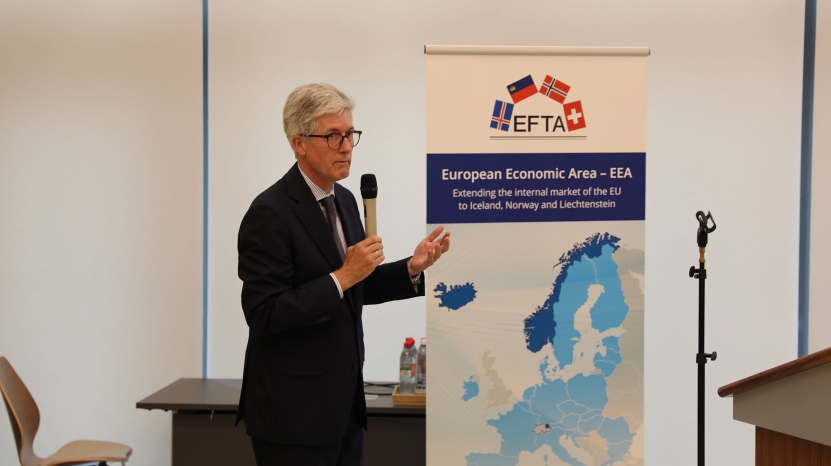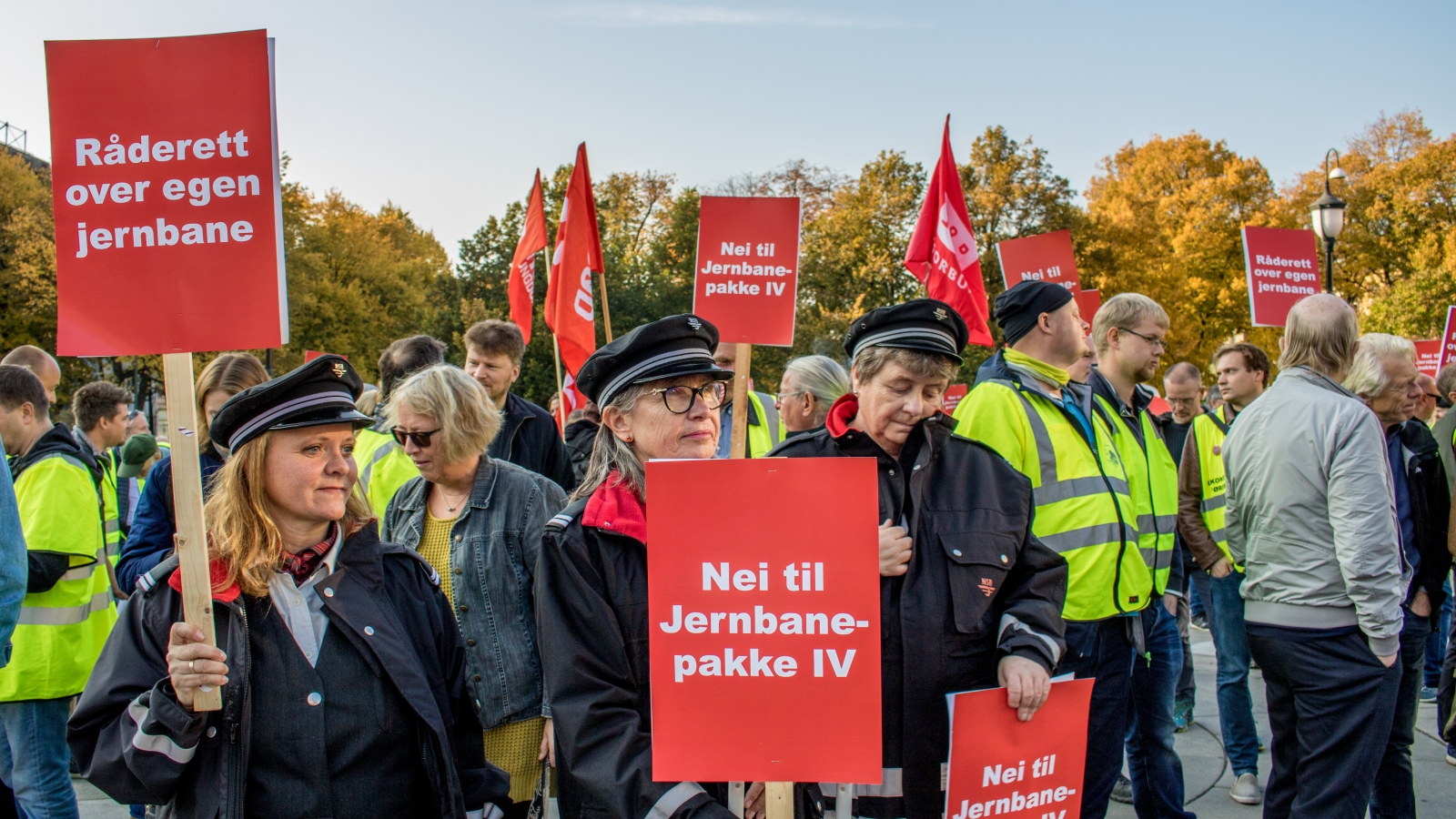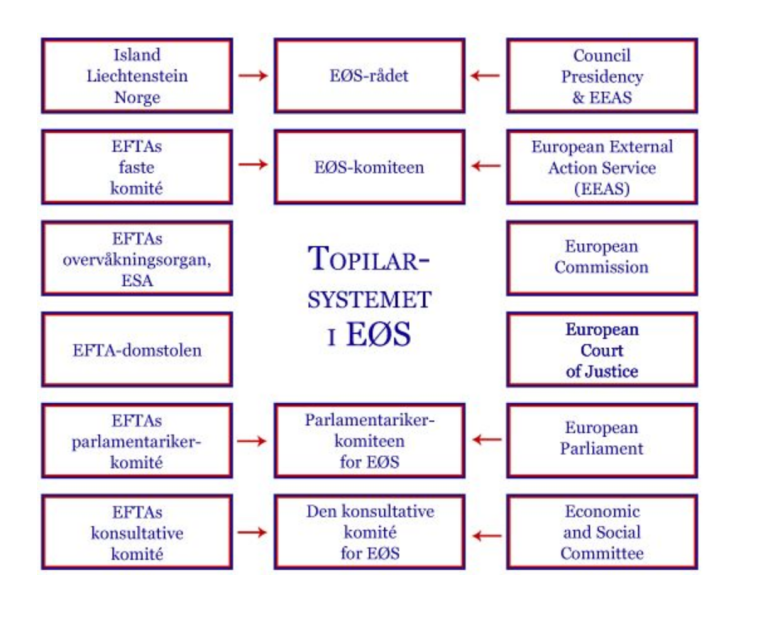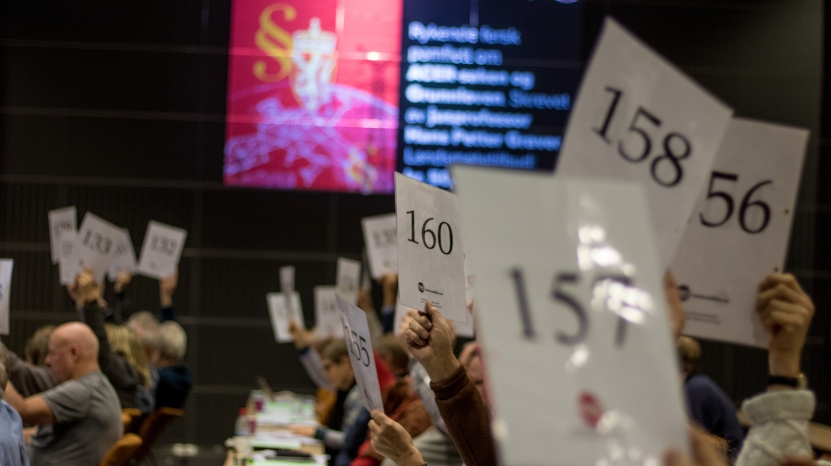
Stakes are high in the EEA after Norwegian general election
Should the EEA Joint Committee choose to incorporate the Railway Package in disregard of the Norwegian electoral vote, it could endanger the legitimacy of the EEA Agreement.

Fierce popular opposition and public debate has delayed the Norwegian parliament’s handling of the proposed incorporation of the EUs 4th Railway package into the EEA Agreement. After the Norwegian Supreme Court in March concluded that the Storting, if it so wishes, can adopt the EU's 4th Railway Package by way of a simple majority, a final decision is expected in May.
The Supreme Court has assessed the Storting's practice of "unobtrusive" transfer of authority and whether or not this is compatible with the Constitution. Only article 115 of the Constitution directly deals with transfer of sovereignty to international bodies, requiring a ¾ majority to do so. Nevertheless, consecutive EEA Acts have been passed as “unobtrusive” and refer to a different article in the Constitution that only requires simple majority. The Court states that this practice has obtained judicial legality, simply due to the fact that the Storting has allowed it to pass for decades.
However, the Supreme Court was not asked to consider, nor has it considered, the consequences for the EEA agreement in light of the fact that the government's railway proposal evades the two-pillar structure.
The core of the matter is that authority will be transferred directly to EU bodies, contrary to the EEA Agreement system where the EU and the three EFTA[1] countries shape two separate pillars. For Norwegians and Icelanders who have regarded the EEA agreement as a national compromise and as a lasting alternative to EU membership, this development is worrying.
Text continues below the illustration.

Should the railway package be adopted in the manner proposed by the Solberg government, this implies that authority concerning, among other things, access and safety on Norwegian railway tracks will be transferred directly to the EU Railway Agency (ERA), to the EU Commission and to the European Court of Justice. That is, to EU bodies where Norway does not have the right to vote or has no representation whatsoever.
Norway should not be allowed to redefine the rules of the game
The precondition for the EEA Agreement has always been that it must be intergovernmental, and not supranational like an EU membership. Legislative, executive, and judicial powers were to remain national, with a few agreed exceptions. The sovereignty of the EFTA countries Norway, Iceland and Liechtenstein is safeguarded by way of two separate pillars, one EU-pillar and one EFTA-pillar. Within the EEA-EFTA pillar all decisions are taken by consensus. The system ensures that decisions in the EU should never have a direct effect in Norway or other EFTA states. Separate bodies – the EFTA Surveillance Authority (ESA) and the EFTA Court – are responsible for enforcement within the EFTA pillar.
Law professor Christoffer Conrad Eriksen at the University of Oslo writes in a report to the Norwegian Railway Workers’ Association and the Norwegian Locomotive Engine Drivers' Association that the transfer of authority to the EU bodies "would be a breach of the special decision-making process in the EEA agreement's two-pillar system" ("EU fourth railway package - constitutional issues", April 2020). Eriksen further points out that this may make it more difficult to reject demands from the EU to transfer authority directly to EU bodies in future cases.
Although Iceland at present has no railways, it is of fundamental importance to all parties if authority is transferred to EU bodies. The Norwegian government has initiated a joint statement in the EEA Committee with Iceland and Liechtenstein, but has refused to publish its contents.
“Iceland should consider the consequences before letting Norway redefine the rules of the game in the EEA procedure”, warns Roy Pedersen, head of the broad ‘No to the EU’ movement in Norway.
Albeit his organization wants Norway to revoke the EEA Agreement, Mr. Pedersen voices concerns he shares with those who still have faith in the EEA Agreement as a lasting alternative to EU membership. An increasing number of supranational EU agencies are challenging the sovereignty of the three EEA-EFTA states embedded in the very structure of the Agreement.
Icelandic politicians have expressed anxiety that the structure of the EEA agreement is collapsing. Foreign Minister Gudlaugur Thór Thórdarson put it this way at a meeting of the EEA Council on 23 May 2018:
“It has become more and more difficult, when EU acts providing for such delegation of powers are incorporated into the EEA Agreement, to find solutions that respect the two-pillar structure of the Agreement. This development is causing more and more unease in Iceland, for parliamentarians, scholars and the general public alike. It is debatable how much further Iceland can go in accepting solutions which are not fully compatible with the two-pillar structure.”[2]
ESA's Norwegian President Bente Angell-Hansen, too, has warned against allowing EU agencies to weaken the two-pillar structure. After emphasizing the desire to "protect and promote the EEA Agreement” at a meeting of the EFTA Ministers on 27 October last year[3], she stated: “We believe the time is ripe to see that the EEA-EFTA pillar is well served when it comes to these developments by adhering to the 2-pillar-structure that makes the EEA Agreement so unique.” Being an experienced diplomat, Angell-Hansen does not mention the railway package or other concrete examples, but as she says: “When a 1-pillar solution is the outcome, it erodes the possibility to bring a case before the EFTA Court.” In other words, when decisions are transferred to the EU, the EEA bodies become marginalized.
The justification given by the Norwegian Ministry of Transport and Communications for deviating from the EEA system is that the EFTA Surveillance Authority does not have competence where railways are concerned, and that it would be cumbersome to establish a separate EFTA body. But ESA has no more expertise in financial supervision or energy matters, and yet the two-pillar structure was not circumvented in these cases. Therefore, the justification for the railway package to be treated otherwise, is not sustainable.
What the Storting could do to safeguard the integrity of the EEA Agreement, is to ask the Norwegian government to rework the railway legislation acts imposed by the Railway package in such a way that the transfer of authority is handed to ESA and the EFTA Court. Thereby, one can also avoid the transfer of legislative authority to the EU Commission, in that the supplementary rules issued by the Commission are dealt with in the ordinary way in the EEA and do not apply until they have been approved by the EEA Joint Committee. So far, the Solberg government stubbornly has rejected to adapt the proposed legislation in this way, stating instead that evading the EFTA pillar is a “new creation within the EEA“.
Five Norwegian opposition parties, the Labour Party, the Center Party, the Socialist People's Party, the Red Party and the Green party, all say no to the 4th Railway Package. Presently, only four votes are lacking to prevent the government from gaining a majority. Concerns from Iceland might lead more MPs to reconsider before Parliament is expected to give its final vote by the end of May.

This work is licensed under a Creative Commons Attribution-ShareAlike 4.0 International License.
[1] Switzerland is also member of the European Free Trade Association (EFTA), but is not part of the EEA Agreement.
[2] https://data.consilium.europa.eu/doc/document/ST-1608-2018-INIT/en/pdf
[3] https://www.eftasurv.int/newsroom/updates/written-statement-esa-president-bente-angell-hansen-2020-efta-ministerial-meeting

Should the EEA Joint Committee choose to incorporate the Railway Package in disregard of the Norwegian electoral vote, it could endanger the legitimacy of the EEA Agreement.

Statement from the No to EU Congress 2018: The EU is expanding based on expert leverage and complex procedures in order to circumvent the rule of law and national control mechanisms.

We knew leaving the EU would be a mess, but a clean Brexit should strengthen future relations between Britain and Norway.